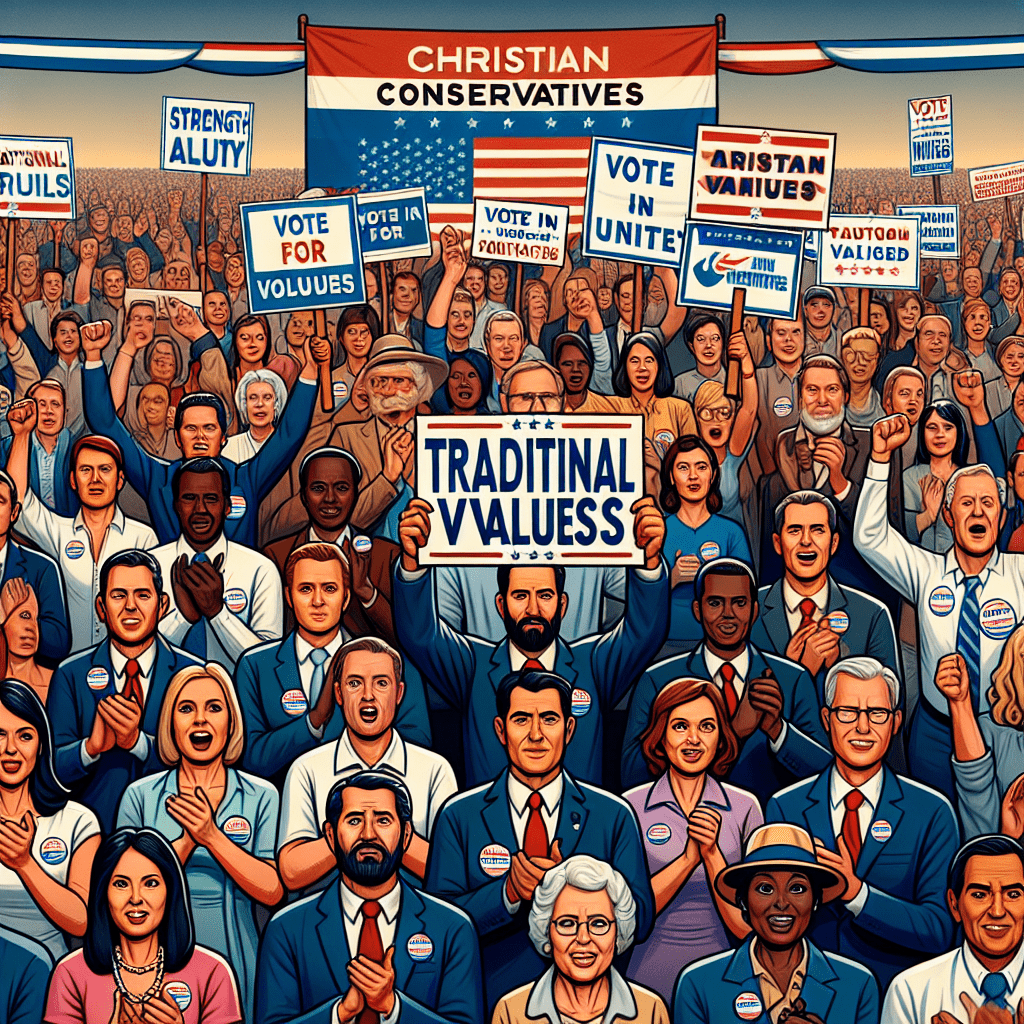Over the past few decades, the political landscape in the United States has become increasingly polarized. One of the key players in this polarization has been the rise of Christian conservatives who are rallying for traditional values in the political arena.
Christian conservatism is a political and social movement that seeks to promote traditional Christian values and beliefs in public policy and governance. This includes issues such as opposing abortion, promoting religious freedom, supporting traditional marriage, and advocating for the protection of religious values in public schools.
In recent years, Christian conservatives have become a powerful force within the Republican Party, with many candidates and elected officials aligning themselves with this ideology. This has led to a number of policy victories for the movement, including the confirmation of conservative judges to the Supreme Court, the passage of pro-life legislation at the state level, and the defense of religious freedom in various legal battles.
One of the key ways that Christian conservatives have made their voices heard in the political arena is through rallies and demonstrations. These events bring together like-minded individuals who share a commitment to traditional Christian values and are eager to see those values reflected in public policy.
One example of this is the annual March for Life in Washington, D.C., which attracts thousands of pro-life advocates who are marching to protest the Roe v. Wade decision and advocate for the protection of the unborn. Other rallies have focused on issues such as religious liberty, marriage, and parental rights in education.
Christian conservatives are also using their influence to shape political campaigns and election outcomes. Many candidates now seek the support of these voters by aligning themselves with issues and values that resonate with this demographic. This has led to the rise of a number of new conservative leaders who are unapologetically Christian in their beliefs and who are unafraid to speak out on behalf of those beliefs.
While Christian conservatives have made significant gains in recent years, they continue to face opposition from those who disagree with their values and beliefs. Critics argue that the movement is exclusionary and discriminatory, and that its policies are out of touch with the changing cultural landscape of the country.
Despite this opposition, Christian conservatives remain committed to their cause and are determined to continue fighting for traditional values in the political arena. With their growing influence and determination, it is likely that we will continue to see the impact of this movement on American politics for years to come.


